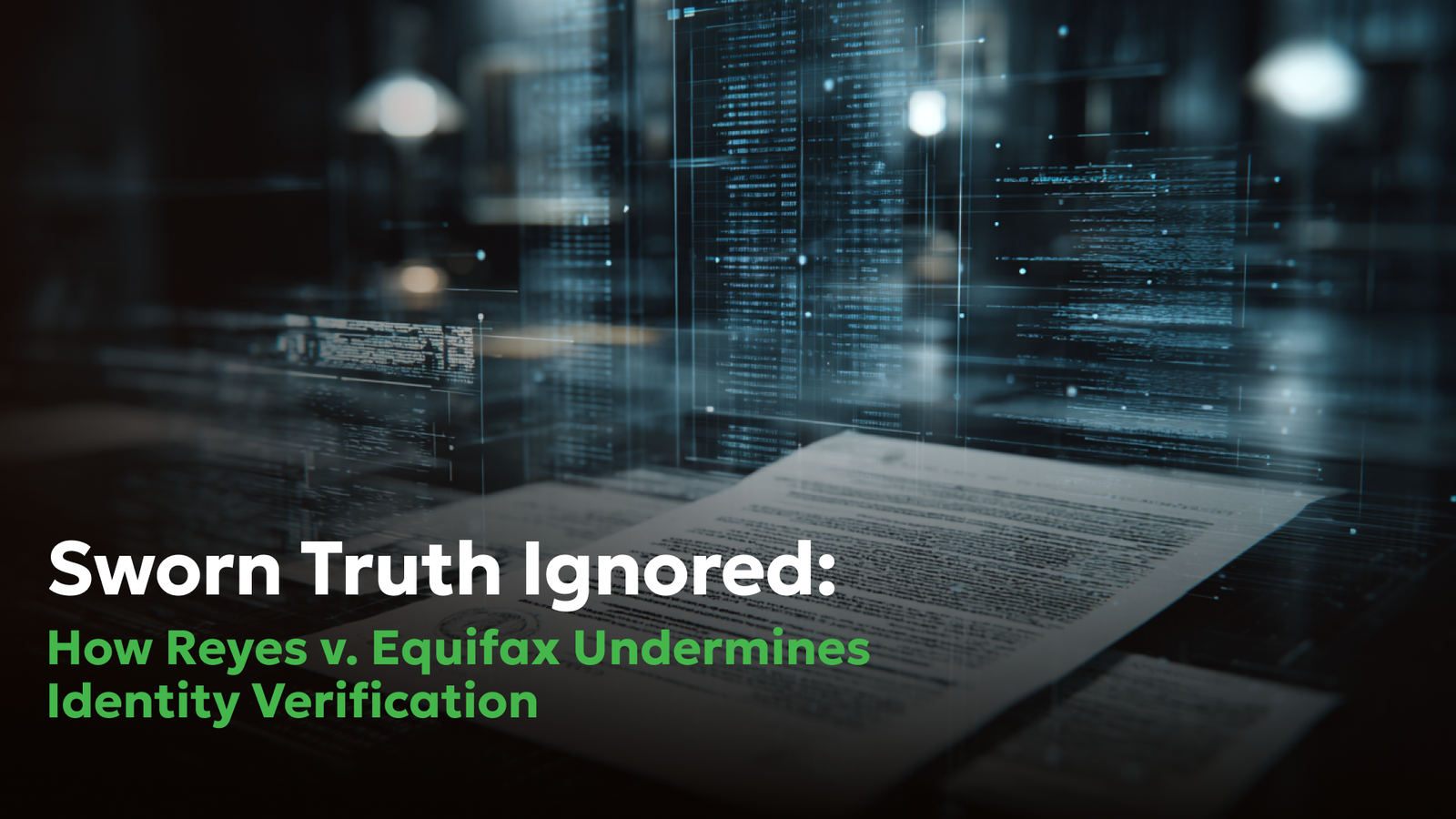How to Prevent Identity Theft
- Blog
- Credit Report Identity Theft
How to Prevent Identity Theft

Protecting your identity is your right! Our lawyers provide tips to protect you online and off before ID theft happens!
The internet has made consumers’ information more accessible to thieves. That’s one of the reasons why understanding Identity theft protection is more important than ever. Our attorneys teach you how to avoid identity theft and recover if your credit took a hit because of a stolen identity. Continue reading for more details!
Identity theft is a crime involving if someone steals your identity and uses it for fraudulent purposes like accessing your finances, getting loans and credit cards, or committing crimes under your identity. Fixing identity theft and fraud after it happens requires a lot of work and patience. Even though you cannot always control if a scammer gains access to some of your personal details, you can take steps to make sure your chance of becoming a victim is smaller.
Identity theft robs millions of Americans of their good credit, peace of mind, and financial security. Identity theft is a complete violation of your rights and privacy. We understand how important it is to prevent ID theft, so in this article, we discuss how to prevent identity theft and provide some basic steps that you can take to protect yourself from identity theft and fraud in the near future.
Identity Theft – What is It?
ID theft is when a criminal takes someone's personal information in order to commit fraud like opening new accounts in the other person's name. Recently, there has been an increase in information online about ID theft protection. Additionally, more people are searching for information regarding what the best identity theft protection is. If you have the same questions, learn about the different types of identity theft, along with identity theft protection tips, below.
- Child. This form of theft happens when a thief steals a child's personal info to get some type of benefit like opening credit cards in the minor’s name. Most children do not have a robust credit history and because of this the theft may take a long time to detect.
- Financial. The process of stealing things like your social, bank details, or credit card numbers to make unauthorized purchases or withdraw money from your accounts is financial theft.
- Criminal. If a criminal is arrested and gives the police your name and information this is considered criminal theft.
- Synthetic. Synthetic ID theft happens when a thief creates a fake identity using your personal information combined with fake details. This form of ID theft is especially troubling because the scammers are able to create several synthetic identities at one time and it can be hard to put an end to this form of ID theft.
- Medical. If you notice new charges for medical bills and you never received treatment for the services charged, you may be a victim of medical ID theft.
Some victims are able to discern that their information has been compromised, however; it can take several months for some people to realize their identities have been stolen. This is why it’s so important to learn how to protect yourself from identity theft and know the signs of identity theft to look for!
Signs of a Stolen Identity
As mentioned above, one of the ways to protect yourself from identity theft is to always be on the lookout for the “signs”. If you catch the signs quickly, doing so will help lessen the adverse effects ID theft can have on your credit profile.
Some of the signs of a stolen identity include higher than normal account balances, strange credit report activity, a rapid decline in your credit score, missing mail, a lot of fraud alerts, and new medical bills in your name. Another signs of identity theft is recent contact from debt collectors. If you paid your bills on time but noticed collection companies contacting you more than normal, this may be a sign that someone opened accounts in your name without your consent. ID theft in any form is brutal for the victims! That’s why you should be prepared to take steps against ID theft before it happens.
How to Prevent Identity Theft
While you have limited control over whether identity thieves will target you, you can take steps to reduce the likelihood of ID theft and fraud:
- Secure Your Information. Limit the amount of information you share with others and always keep sensitive documents such as your Social Security card and birth certificate in a safe place like a safe instead of in your purse or wallet. When you are finished using papers, add a final level of security by shredding the ones that contain sensitive information.
- Use Strong Passwords. Thieves can gain access to your details by stealing your passwords, sometimes very easily. This is why it is important to have financial identity theft protection in the form of STRONG passwords containing upper and lower-case letters, numbers, and symbols. Do not use names of pets and family members as your passwords. Scammers have a knack for guessing those. Also, do not use the same password for all of your accounts because it is a convenient way for thieves to gain access to all your accounts. Finally, PLEASE change your passwords often. You should not still be using the same password you used 25-years ago for your AOL account for your recently created Gmail account. Switch it up!
- Multi-factor Authentication. You can help protect yourself from identity theft by activating two-factor or multi-factor authentication whenever it is available. This helps protect your user identity through various methods before access is given.
- Use a VPN. Public networks are vulnerable to cyber-attacks; therefore, it is essential to use a virtual private network (VPN) that creates a secure, encrypted connection for all network traffic to and from your device.
- Credit Monitoring and Freezes. It’s a good idea to put credit monitoring on your credit profile and financial accounts. That way if there is suspicious activity, you will get an alert. If you are alerted of ID theft, you can then put a credit freeze on your credit. Placing a credit freeze on your credit profile is a powerful way to avoid synthetic identity theft by enhancing your data security. A freeze places limits on who can access your credit report which makes it difficult for the identity thieves to open fraudulent accounts.
- Credit lock. There is difference between credit lock and credit freeze and there are some nuances. Similar to a freeze, a credit lock will prevent someone from pulling your credit report with the intent of opening new accounts with your identity. A credit lock also prevents any new trade lines from being opened. You should reach out to the credit bureaus directly for a credit lock.
Who Should You Contact if Your Identity is Stolen?
If you determine you are an identity theft victim, take prompt action by contacting your banks, credit card companies, police, a consumer protection attorney, credit bureaus, and the FTC.
A Consumer Protection Attorney
Contact an attorney with experience helping identity theft victims. You can make contacting a lawyer the first step in your recovery process. With the assistance of an attorney, you'll have help fighting fraudulent accounts and cleaning up reports from data furnishers and Consumer Reporting Agencies (credit agencies). You will have help navigating the legal process and filing the appropriate paperwork from the very beginning!
Financial Institutions
Contact your financial institutions right away. When you contact your credit card companies and your bank, a representative can help you close accounts and issue new cards when needed. Sometimes closing a bank account is your best option since scammers can still open bank accounts in your name even after a credit freeze or lock is in place. On the other hand, if you contact your credit card companies and place fraud alerts on your accounts once your credit is frozen or locked, it can be extremely difficult for scammers to bypass those deterrents.
Credit Agencies
After alerting your financial institutions, you should reach out to all three major consumer reporting agencies: Experian, Equifax, and TransUnion. Contacting these credit agencies and requesting a credit freeze or credit lock on your credit profile helps prevent lenders from accessing your credit report and prevents scammers from opening new accounts in your name.
FTC
If you’ve contacted your financial institutions and credit bureaus, you should contact the Federal Trade Commission (FTC). There is a place on the FTC’s website that allows you to file a complaint if you suspect fraudulent activity. Be sure to take screenshots and save the complaint details in case you need it in the future.
The Police
Call the Police! The police will investigate the theft and provide you with a police report. The police report serves as documentation that your identity is compromised and allows you to file charges against scammers if the police are able to locate them. At the very least, a police report creates a document trail which is crucial to have when disputing negative items on your credit report.
If you suffer from identity theft, an identity fraud lawyer can explain your options. Seek help from our consumer lawyers for information regarding ID fraud protection.
Frequently Asked Questions
There are some systems and tools you can use to determine if someone is using your identity like free identity theft protection tools. For instance, using free apps to monitor your credit activity can help inform you if your identity is compromised. Additionally, placing fraud alerts on your accounts can also help you figure out if your identity has been stolen. If you don’t want to use the tools mentioned, you should pull your credit reports and review them for discrepancies. If you see new accounts you didn’t open, or accounts in default it’s likely someone is using your identity.
The best way to resolve identity theft is to have protection against identity theft. What this means is, it’s important to prevent identity theft before it happens. You can do this by securing your information with strong passwords, and protecting your sensitive details (like social and address). After you’ve put preventative measures in place, and you still become a victim of ID theft, you can work to resolve it by contacting an attorney, disputing accounts reported to credit bureaus, seeking a credit freeze on your credit profile, filing a complaint with the FTC, contacting the police, and calling your financial institutions to have accounts closed if necessary.
If you are certain your SSN (Social Security number) has been stolen, you should request a new social from the SSA (Social Security Administration). You can do so by contacting your local office or setting up an appointment. In addition to contacting the SSA, contact your banks and credit card companies to discuss your options. You should update your account security features by changing your passwords and adding more layers of protection (like multi-factor authentication) making it more difficult for scammers to open credit accounts in your name. In addition, set up fraud alerts and credit freezes to deter further exploitation of your current SSN.
In order to find out if someone applied for credit in your name, compare your credit reports from Equifax, Experian and TransUnion. You are entitled to get your free credit reports from AnnualCreditReport.com. When reviewing your credit accounts, you should be able to determine if someone applied for credit in your name because recently opened credit files should be listed. Also review your physical mail and your emails for communication from creditors requesting payment or listing account balances that look new to you. If you think your bank accounts are compromised, you should contact your financial institutions for details regarding recently opened accounts.
The process of recovering from identity theft has been improved due to stronger consumer protection laws, but it is not easy and still needs a huge time investment. If your identity is stolen, you should anticipate that the recovery process may be long and tedious. You can expect the process to include finding and confirming fraudulent accounts, changing your passwords and security features, closing accounts, putting a freeze on your credit, and hiring someone to help you after your credit takes a hit. Our identity theft attorneys have helped thousands of clients and we can also help you recover if you are a victim of identity theft.


Daniel Cohen is the Founder of Consumer Attorneys. Daniel manages the firm’s branding, marketing, client intake and business development efforts. Since 2017, he is a member of the National Association of Consumer Advocates and the National Consumer Law Center. Mr. Cohen is a nationally-recognized practitioner of consumer protection law. He has a we... Read more
Related Articles




R
ONGS™You pay nothing. The law makes them pay.







